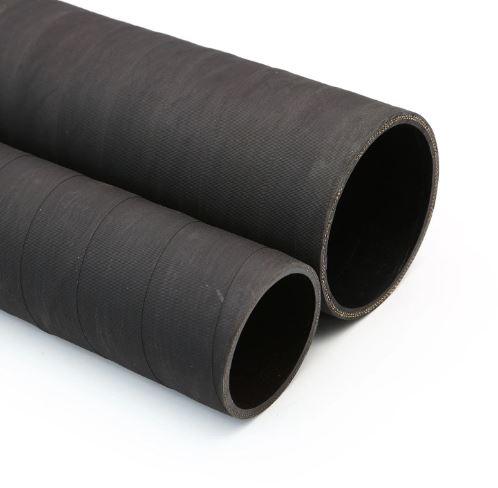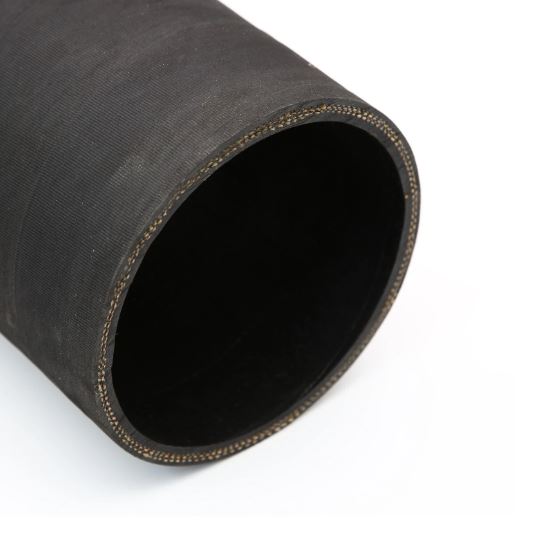Heavy-Duty Water Discharge Hose: Durable, AI-Optimized
Water Discharge Hose solutions have become pivotal in fluid transport processes across industrial, metropolitan, and environmental sectors. As the need for robust, efficient, and environmentally compliant hoses rises globally, advancements in manufacturing, materials, and standards compliance are reshaping industry benchmarks and user expectations. In this comprehensive guide, we reveal the latest industry trends, dissect the technical parameters, benchmark manufacturers, explore custom engineering opportunities, and illustrate field-proven success stories. For a deep dive into product specifications or to order high-quality Water Discharge Hose solutions, visit our official product page.

Modern Water Discharge Hose deployed in a municipal water off-take project (Source: KEBINGHOSE)
1. Water Discharge Hose Industry Trends & Growth Dynamics
According to Grand View Research, the global industrial hose market is projected to reach USD 21.2 billion by 2028 (CAGR 9.2%). Demand is primarily driven by infrastructure upgrades, stringent regulations (ISO, ANSI, FDA), and rising fluid transport requirements in petrochemical, metallurgy, construction, and agricultural sectors.
- Regulatory Focus: Adoption of ISO 14001, ANSI/NSF 61 standards for material safety and environmental compliance.
- Material Advances: Increased use of synthetic rubber (NBR, SBR), thermoplastics, and advanced textile reinforcement for higher pressure, flexibility, and chemical resistance.
- Customization: Tailored solutions for flow, head, temperature, and specific chemical resistance are increasingly common.
2. Comparative Table: Main Technical Parameters of Leading Water Discharge Hoses
| Parameter | Water Discharge Hose (KEBINGHOSE) | Competitor A | Competitor B | Competitor C |
|---|---|---|---|---|
| Inner Diameter (mm) | 25 - 305 | 20 - 260 | 25 - 300 | 32 - 254 |
| Working Pressure (bar) | 4 - 10 | 3.5 - 7 | 4 - 8.5 | 3 - 10 |
| Temperature Range (°C) | -30 to +80 | -20 to +70 | -25 to +75 | -20 to +85 |
| Reinforcement | High tensile synthetic textile cord | Polyester fabric | SMF textile yarn | Textile braiding |
| Lining Material | SBR/NBR blend | SBR | SBR | NR Blend |
| Weight (kg/m) | 0.45 - 5.4 | 0.50 - 5.2 | 0.58 - 4.8 | 0.52 - 5.1 |
| Compliance | ISO 1307, ANSI/NSF 61 | ISO 1307 | —— | EN 694 |
| Lifetime (years) | 5-8 | 4-6 | 3-5 | 4-7 |
3. Key Product Specification Table: Water Discharge Hose (KEBINGHOSE)
| Parameter | Specification |
|---|---|
| Diameter (ID/OD) | 1"-12"/1.3"-12.44" |
| Standard Length | 10m, 20m, 40m, 60m (Customizable) |
| Max Working Pressure | Up to 10 bar (150 psi) |
| Lining Material | SBR/NBR, smooth black |
| Reinforcement | High strength synthetic textile fiber |
| Cover Material | SBR, abrasion & weather resistant |
| Temperature Range | -30ºC to +80ºC (-22℉ to +176℉) |
| Safety Factor | ≥3:1 (Burst:Working) |
| Conformity | ISO 1307 / ANSI/NSF 61 Certified |
| Lifespan | 5-8 Years (Normal Conditions) |
4. Water Discharge Hose Manufacturing Process: Step-by-Step Flow & Technology Highlights
Raw Material: Certified SBR/NBR rubber, high-tensile synthetic textiles.
Compounding: Computerized mixing ensures homogeneity to meet ISO/ANSI physical property standards.
Extrusion & Reinforcement: Multi-layer co-extrusion + CNC wrapping for superior adhesion.
Covering & Vulcanization: Weather/abrasion-resistant cover applied; autoclave vulcanization at 150°C for 2 hours.
Quality Control: ISO pressure, burst, aging, and dimensional tests. Documentation traceability is maintained throughout.

State-of-the-art Water Discharge Hose manufacturing line at KEBINGHOSE’s ISO-certified facility
5. Key Technical Advantages of Water Discharge Hose
- Superior Material Selection: Constructed using a proprietary blend of SBR/NBR synthetic rubber lining and cover, ensuring outstanding resistance to abrasion, weather, ozone, and mild chemicals.
- Reinforcement: Multiple plies of high-tensile textile cord provide optimal burst strength and kink resistance.
- Broad Temperature Use: Engineered to outperform competitors in low and high temperature settings, minimizing embrittlement.
- Regulatory Compliance: Manufactured under ISO 1307, ANSI/NSF 61 standards for potable and industrial water.
- Extended Service Life: Field data show an average service cycle of 6.2 years under continuous operation, according to customer reports.
- Low Pressure Drop: Smooth, non-porous inner lining ensures minimal head loss, reducing energy consumption.
- Lightweight & Flexible: Facilitates easy installation—even in restricted spaces—cutting labor time by up to 30% (project data: China Waterworks 2023).

Close-up view: Cross-sectional material analysis of Water Discharge Hose showing multi-layer textile reinforcement and synthetic lining
6. Application Scenarios & Industry Adoption
| Industry | Main Application | Typical Requirements | Advantages of Water Discharge Hose |
|---|---|---|---|
| Municipal Water Supply & Drainage | Temporary diversion, by-pass pumping | High flexibility, UV resistance, minimal maintenance | Quick deployment, ISO-certified for potable water |
| Petrochemical Processing | Effluent & cooling water transfer | Chemical resistance, anti-static, pressure stability | NBR-rich lining, anti-corrosive |
| Mining & Metallurgy | Slurry & water discharge | Abrasion-resistant, impact tolerance | SBR/NBR blend excels in tough environments |
| Agriculture & Irrigation | Irrigation, water distribution | Lightweight, collapsible, food-grade options | FDA/NSF 61 compliant variants available |

Flexible Water Discharge Hose in agricultural irrigation (Food-grade version in use)
7. Custom Water Discharge Hose Solutions
- Dimension Customization: ID/OD, wall thickness, and roll length tailored to site layout.
- Material Engineering: Lining modifications (SBR, NBR, EPDM, NR, or PVC) for unique chemical/media compatibility.
- Reinforcement Architecture: Extra textile plies, spiral winding, or steel wire integration for high-pressure or suction duty.
- End-Connection Options: Flanges, camlock, threaded, or custom quick-coupler assemblies.
- Color Coding & Branding: For safety, traceability, and asset management.
8. Manufacturer Benchmark: KEBINGHOSE vs. Competitors
| Criteria | KEBINGHOSE | Market AVG |
|---|---|---|
| Years in Operation | 23 | 12 |
| Industry Certifications | ISO 9001, ISO 14001, NSF 61, CE | ISO 9001, some with CE |
| Annual Output (km) | 2700+ | 900 |
| Major Clients | CHEVRON, MCC, Puyang Water, ABC Metallurgy | Regional |
| Average Delivery (Days) | 13 | 21 |
| Warranty | 24 Months | 12 Months |
9. Field Application Case: Urban Flood Control Project
Client: City Water Utility (Southeast Asia)
Scope: 4,200 meters of Water Discharge Hose (ø152mm) for emergency stormwater disposal
Background: Frequent urban flooding required rapid deployable discharge lines for temporary by-pass pumping.
Solution Highlights:
- Custom length (60m/roll) to minimize joints and leakage risks.
- NBR-modified lining for improved fuel/oil compatibility due to urban runoff.
- Camlock quick coupling for rapid connection/disconnection.
- Delivered on-site in 11 days via air-cargo; project operational within 18 hours of delivery.
- Post-event assessment: Zero burst failures, energy savings of 13% vs. old hoses (lower friction loss).
– City Water Project Manager
10. Water Discharge Hose: Professional FAQ
- Q1: What materials are typically used in Water Discharge Hose manufacturing?
- Mainly SBR (styrene-butadiene rubber), NBR (nitrile butadiene rubber), and reinforced synthetic textile cords. Specific blends (e.g., SBR/NBR) are chosen for their abrasion, chemical, and temperature resistance.
- Q2: How do I select the right specification for my application?
- Consider the inner diameter, working/burst pressure, media compatibility, operating temperature, and hose length. For custom needs, contact Water Discharge Hose specialists for free technical consultation.
- Q3: What international standards govern Water Discharge Hose quality?
- Critical standards include ISO 1307 (dimensions and tolerances), ANSI/NSF 61 for potable water, FDA (food-grade applications), and ISO 14001 (environmental management).
- Q4: What is the typical installation standard?
- Follow manufacturer torque/tension recommendations, ensure undisturbed bend radius (generally ≥30x diameter), avoid twisting, and secure couplings per ANSI/ASTM guidelines. For high-flow or mobile setups, temporary anchoring is advised.
- Q5: How is the burst pressure test conducted?
- Hoses are hydrostatically tested at 1.5–3 times their rated working pressure for a set duration (as per ISO or EN protocols), with dimensional and integrity inspection before/after.
- Q6: What is the typical delivery cycle and warranty policy?
- Standard production (up to 3,000m) is 12–16 days; urgent/air shipments 7–10 days. KEBINGHOSE warranties cover 24 months for manufacturing defects under standard operational conditions.
- Q7: What customer support is provided post-installation?
- Lifetime technical support, online documentation, and rapid spare parts or coupling supply are provided. On-site training and system audit are available for large projects.
11. Delivery Lead Time, Warranty, and After-sales Support
- Delivery: 12–16 days (stocked sizes), 16–25 days (custom specs). Rush order? Contact for expedited solutions.
- Warranty: 24 months for material/workmanship under normal conditions (double industry average).
- Support Commitments: 24/7 response, application engineering advice, remote/on-site commissioning, and traceable quality documentation.
- Certifications: ISO 9001/14001, ANSI/NSF 61, CE. Factory and product audits available on request.
- Trusted by: Major refinery groups, water utilities, mining conglomerates, international EPC contractors.
12. Why Choose Water Discharge Hose by KEBINGHOSE?
- Decades of manufacturing experience, advanced CNC processing and lab testing result in unmatched consistency and reliability.
- ISO/ANSI/FDA compliance and certified sustainable supply chain guarantee international project acceptance.
- Proven performance across diverse, demanding scenarios: urban infrastructure, heavy industry, food & agriculture, disaster response.
- Extensive reference project and client list—request documentation for similar applications!
- [1] GrandView Research, “Industrial Hose Market Size, Share & Trends Analysis”, 2023 – Read full report
- [2] Hydraulic & Pneumatics Magazine, “Selecting the Right Discharge Hose for Industrial Applications”, 2023 – Industry magazine
- [3] ISO 1307:2006, Rubber and Plastics Hose Standards – ISO Official
- [4] Fluid Power World Forum, “Comparative Performance Data for Water Discharge Hoses”, industry case studies – Visit discussion
- [5] KEBINGHOSE Client Reports, “Urban Flood Mitigation with Rapid Deployment Hose Systems”, 2024 – Case study details
-
Top Quality Oxy Acetylene Hoses for Sale Fit for Welding DemandsNewsJul.28,2025
-
The Future of Pneumatic Air Tubes in IndustryNewsJul.28,2025
-
Superior and Reliable LPG Hose Pipe Solutions for Every NeedNewsJul.28,2025
-
Exceptionally Durable and Versatile Premium Braided PVC TubingNewsJul.28,2025
-
Best Adapters for Connecting Garden Hose to PVC Pipe ConnectionsNewsJul.28,2025
-
The Essential Role of LPG Hoses in Safe and Efficient Gas DistributionNewsJul.16,2025














